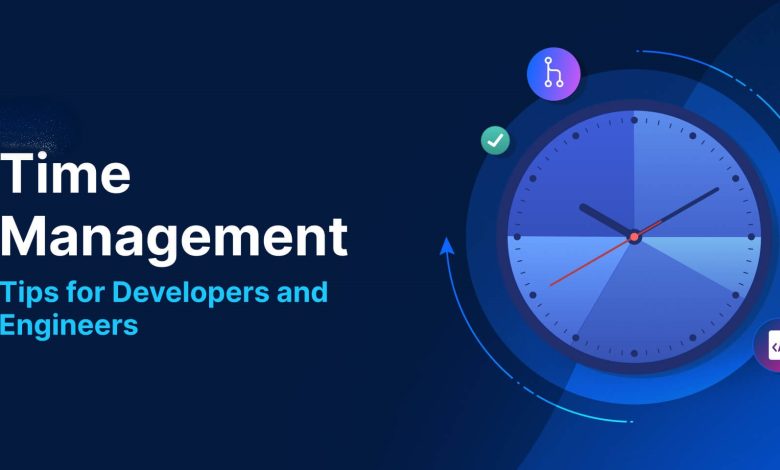Time Management Tips for Developers

Software development often involves juggling multiple tasks, projects, and deadlines. Without proper time management, even skilled developers can struggle to meet goals, experience burnout, or lose productivity.
In this article, we’ll explore practical time management tips specifically for developers to stay focused, organized, and efficient.
1. Prioritize Tasks Effectively
Use the Eisenhower Matrix to categorize tasks:
- Neither → Consider eliminating
- Urgent but Not Important → Delegate
- Important but Not Urgent → Schedule
- Urgent & Important → Do immediately
- Focus on tasks that deliver the most value.
2. Break Work into Smaller Chunks
- Divide complex projects into manageable tasks.
- Use techniques like time-boxing or Pomodoro (25-minute focused sessions).
- Benefits: Reduces overwhelm, increases focus, and tracks progress efficiently.
3. Plan Your Day or Week in Advance
- Start each day with a to-do list or Kanban board.
- Allocate time blocks for coding, meetings, and learning.
- Use tools like Trello, Asana, or Jira for task management.
4. Minimize Distractions
- Turn off notifications or use “Do Not Disturb” mode.
- Limit social media or non-work browsing during focus hours.
- Consider distraction-free coding editors like VS Code Zen mode.
5. Use Version Control and Automation
- Tools like Git and GitHub reduce time spent on tracking changes manually.
- Automate repetitive tasks with scripts, CI/CD pipelines, or build tools.
- This frees up time for coding and problem-solving.
6. Learn to Say No
- Avoid taking on too many side projects at once.
- Prioritize tasks aligned with your career goals and deadlines.
- Saying no reduces stress and increases focus on high-priority work.
7. Delegate and Collaborate
- If working in a team, delegate tasks where possible.
- Collaborate using shared repositories, project boards, and documentation.
- Efficient teamwork saves time and prevents duplication of work.
8. Track Your Time
- Use tools like Toggl, Clockify, or RescueTime to monitor how your day is spent.
- Identify time-wasting habits and adjust your workflow accordingly.
- Set realistic deadlines based on data rather than guesswork.
9. Take Breaks and Rest
- Avoid prolonged coding sessions without breaks.
- Short breaks increase focus and mental clarity.
- Consider stretching, walking, or mindfulness exercises to refresh your mind.
10. Continuous Learning and Skill Improvement
- Invest time in learning efficient coding techniques and new tools.
- Well-learned shortcuts, frameworks, and libraries save time in the long run.
- Attend workshops or online tutorials to improve workflow efficiency.
11. Review and Reflect
- At the end of the week, review completed tasks and pending items.
- Identify areas to improve efficiency and adjust your plan.
- Continuous reflection ensures progress and consistent productivity.
Conclusion
Effective time management is a critical skill for developers. By prioritizing tasks, minimizing distractions, automating repetitive work, and taking care of your mental health, you can increase productivity while avoiding burnout.
Implementing these strategies consistently will not only make you a more efficient developer but also enhance the quality of your work and career growth.

